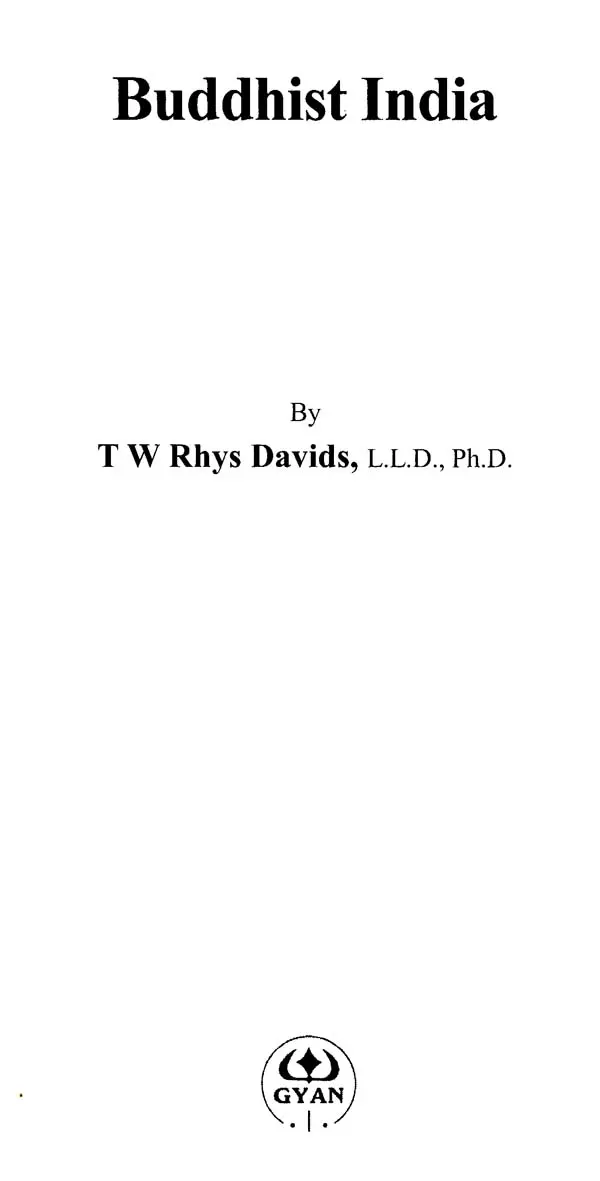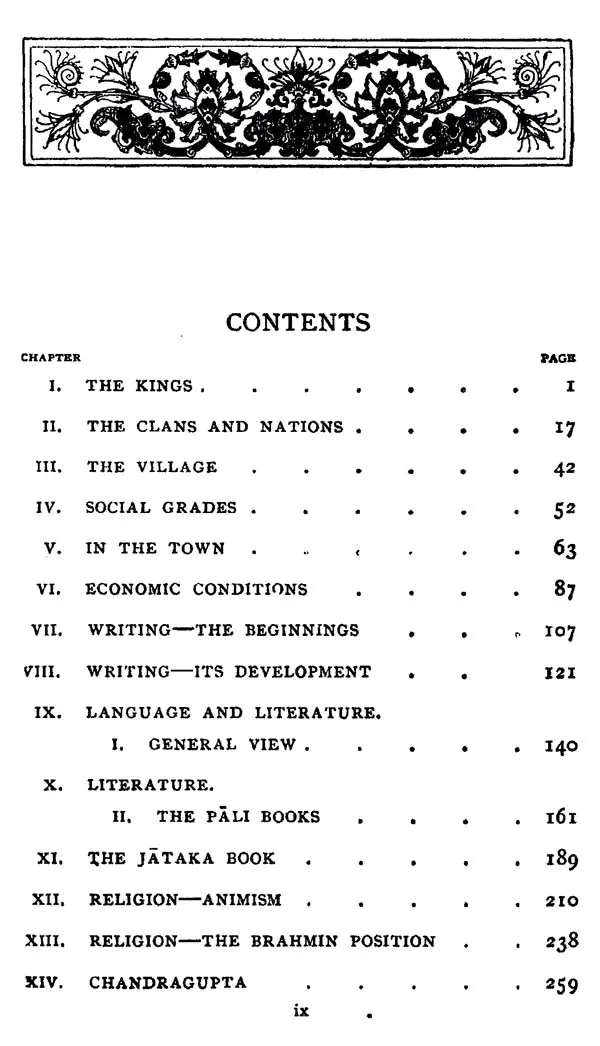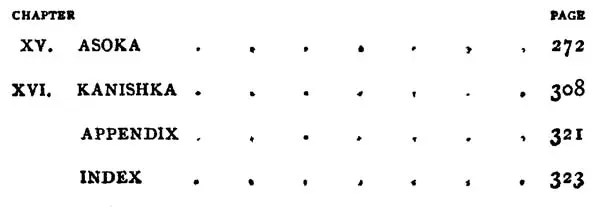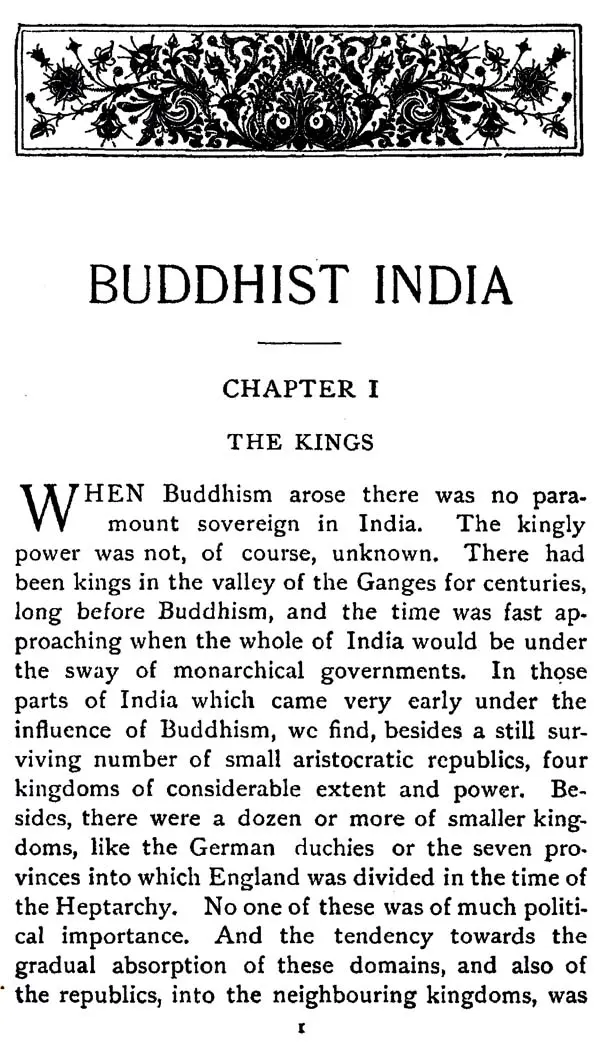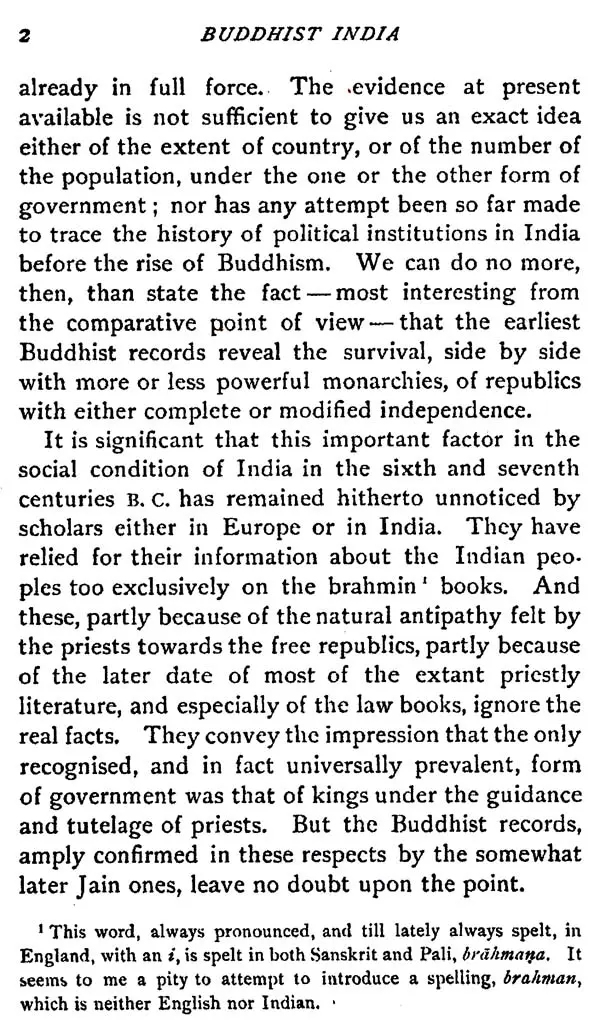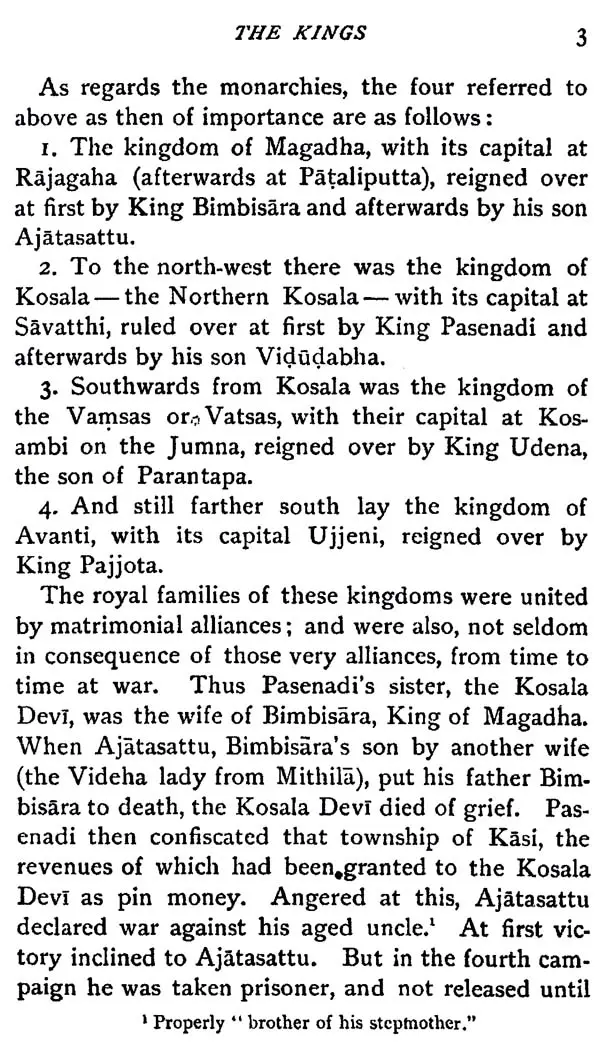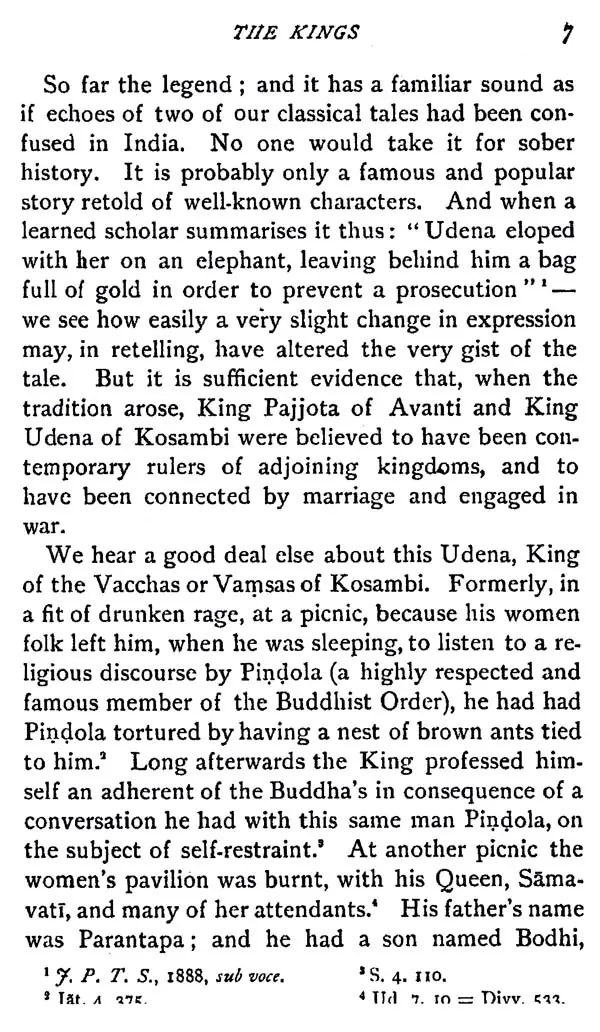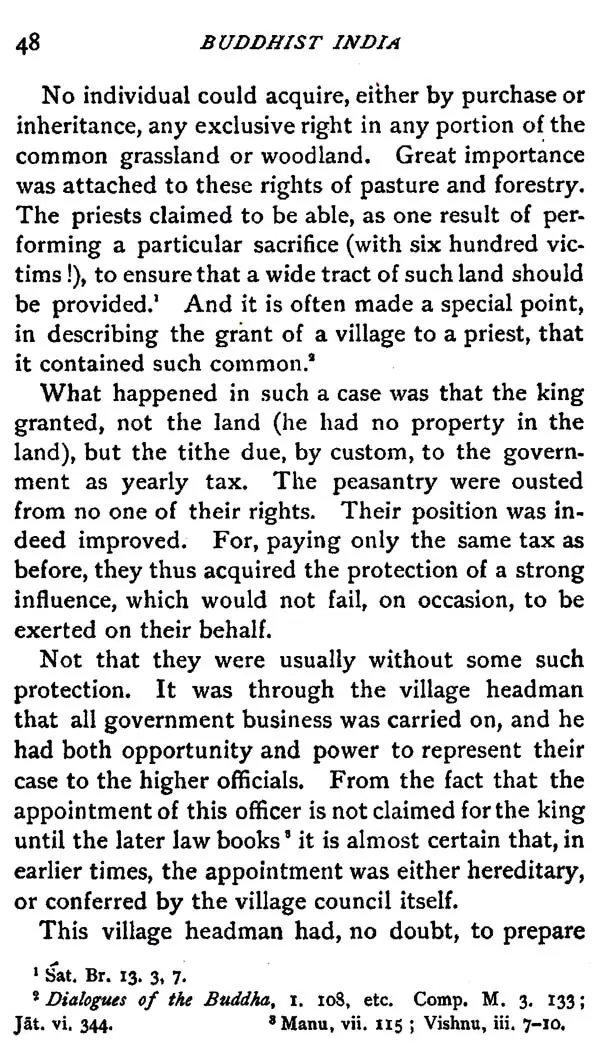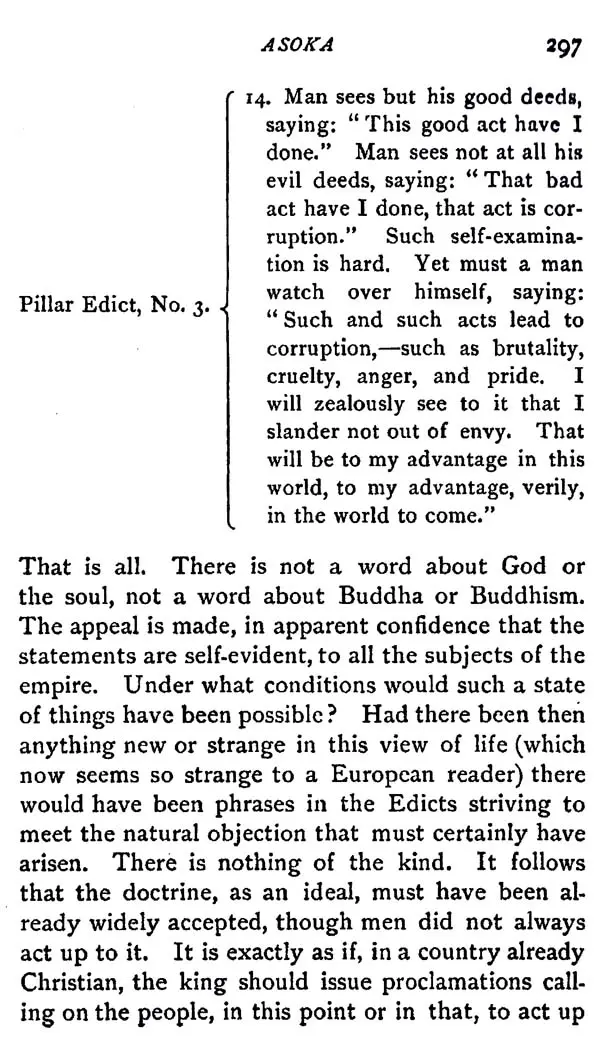
Buddhist India
Book Specification
| Item Code: | UBA601 |
| Author: | T. W. Rhys Davids |
| Publisher: | Gyan Publishing House, New Delhi |
| Language: | English |
| Edition: | 2022 |
| ISBN: | 9788121266307 |
| Pages: | 332 |
| Cover: | HARDCOVER |
| Other Details | 9.00 X 6.00 inch |
| Weight | 520 gm |
Book Description
Even to make this attempt at all may be regarded by some as a kind of lèse majesté. The brahmin view, in possession of the field when Europeans entered India, has been regarded so long with erence among us that it seems almost an impertinence now, to put forward the other. "Why not leave well alone? Why resuscitate from the well- deserved oblivion in which, for so many centuries, they have happily lain, the pestilent views of these tiresome people? The puzzles of Indian history have been solved by respectable men in Manu and the Bhárata, which have the advantage of being equally true for five centuries before Christ and five centuries after. Shade of Kumárila! what are we to when the writings of these fellows renegade brahmins among them too-are actually taken seriously, and mentioned without a sneer? If by chance they say anything well, that is only because it was better said, before they said it, by the orthodox brahmins, who form, and have always formed, the key-stone of the arch of social life in India. They are the only proper authorities. Why trouble about these miserable heretics?"
Well, I would plead, in extenuation, that I am not the first guilty one. People who found coins and inscriptions have not been deterred from considering them seriously because they fitted very badly with the brahmin theories of caste and history. The matter has gone too far, those theories have been already too much shaken, for anyone to hesitate before using every available evidence. The evidence here collected, a good deal of it for the first time, is necessarily imperfect; but it seems of. ten to be so suggestive, to throw so much light on points hitherto dark, or even unsuspected, that the trouble of collecting it is, so far at least, fairly justi fied. Any words, however, are, I am afraid, of little avail against such sentiments. Wherever they exist the inevitable tendency is to dispute the evidence, and to turn a deaf ear to the conclusions. And there is, perhaps, after all, but one course open, and that is to declare war, always with the deepest respect for those who hold them, against such views. The views are wrong.
**Contents and Sample Pages**
